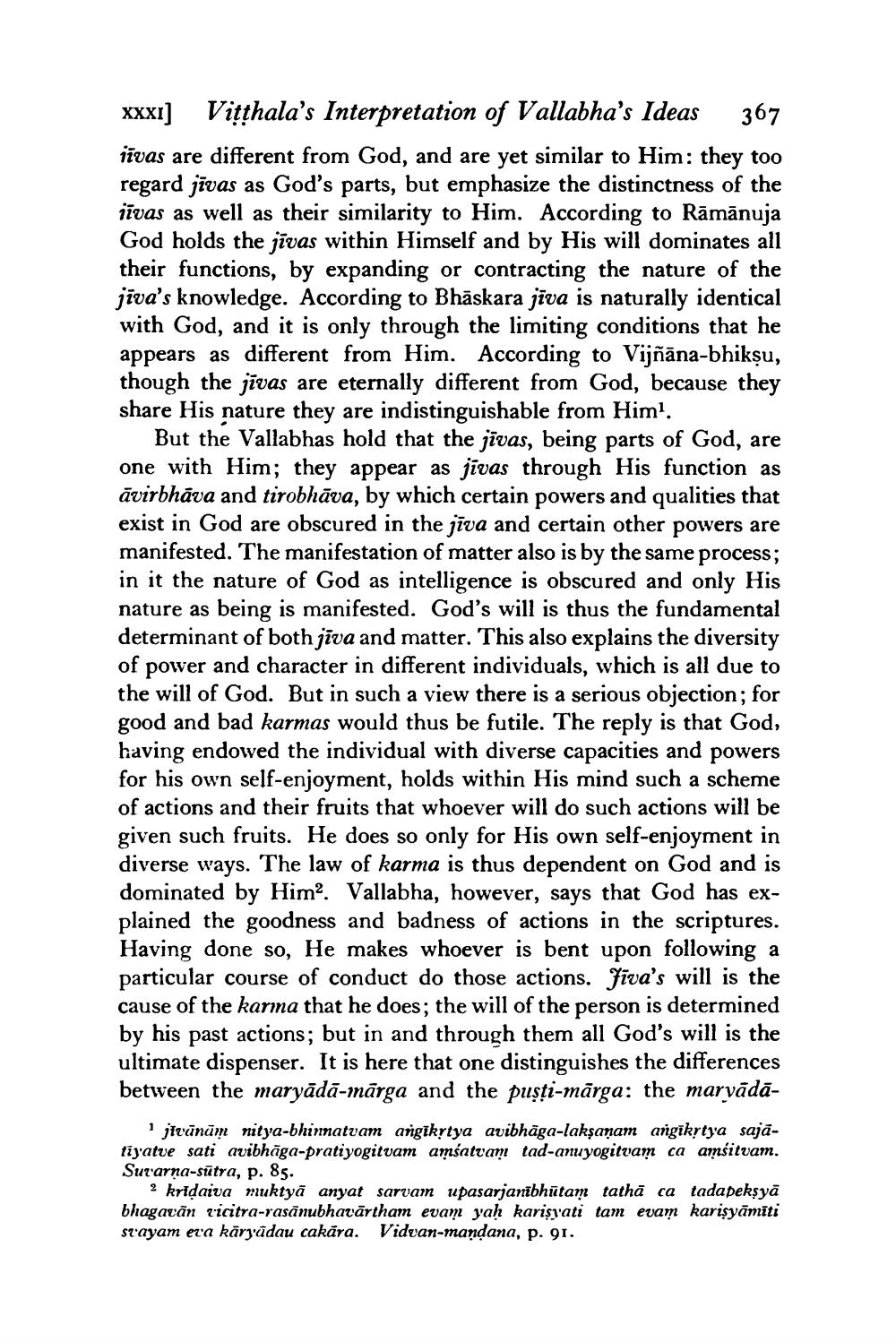________________
XXXI] Vitthala's Interpretation of Vallabha's Ideas 367 jīvas are different from God, and are yet similar to Him: they too regard jīvas as God's parts, but emphasize the distinctness of the iīvas as well as their similarity to Him. According to Rāmānuja God holds the jīvas within Himself and by His will dominates all their functions, by expanding or contracting the nature of the jīva's knowledge. According to Bhāskara jīva is naturally identical with God, and it is only through the limiting conditions that he appears as different from Him. According to Vijñāna-bhikṣu, though the jīvas are eternally different from God, because they share His nature they are indistinguishable from Him.
But the Vallabhas hold that the jīvas, being parts of God, are one with Him; they appear as jīvas through His function as āvirbhāva and tirobhāva, by which certain powers and qualities that exist in God are obscured in the jīva and certain other powers are manifested. The manifestation of matter also is by the same process; in it the nature of God as intelligence is obscured and only His nature as being is manifested. God's will is thus the fundamental determinant of both jīva and matter. This also explains the diversity of power and character in different individuals, which is all due to the will of God. But in such a view there is a serious objection; for good and bad karmas would thus be futile. The reply is that God, having endowed the individual with diverse capacities and powers for his own self-enjoyment, holds within His mind such a scheme of actions and their fruits that whoever will do such actions will be given such fruits. He does so only for His own self-enjoyment in diverse ways. The law of karma is thus dependent on God and is dominated by Him?. Vallabha, however, says that God has explained the goodness and badness of actions in the scriptures. Having done so, He makes whoever is bent upon following a particular course of conduct do those actions. Jiva's will is the cause of the karma that he does; the will of the person is determined by his past actions; but in and through them all God's will is the ultimate dispenser. It is here that one distinguishes the differences between the maryādā-mārga and the puşti-mārga: the marvādā
jirānām nitya-bhinnatvam angīkrtya avibhāga-lakṣaṇam angīkrtya sajātiyatue sati avibhāga-pratiyogitvam amsattam tad-anuyogitvam ca amsitvam. Surarna-sūtra, p. 85.
2 kridaiva muktyä anyat sarvam upasarjanibhūtam tathā ca tadapeksyā bhagavan licitra-rasānubhavārtham evam yah karisyati tam evam karisyāmīti st'ayam era kārjūdau cakára. Vidvan-mandana, p. 91.




